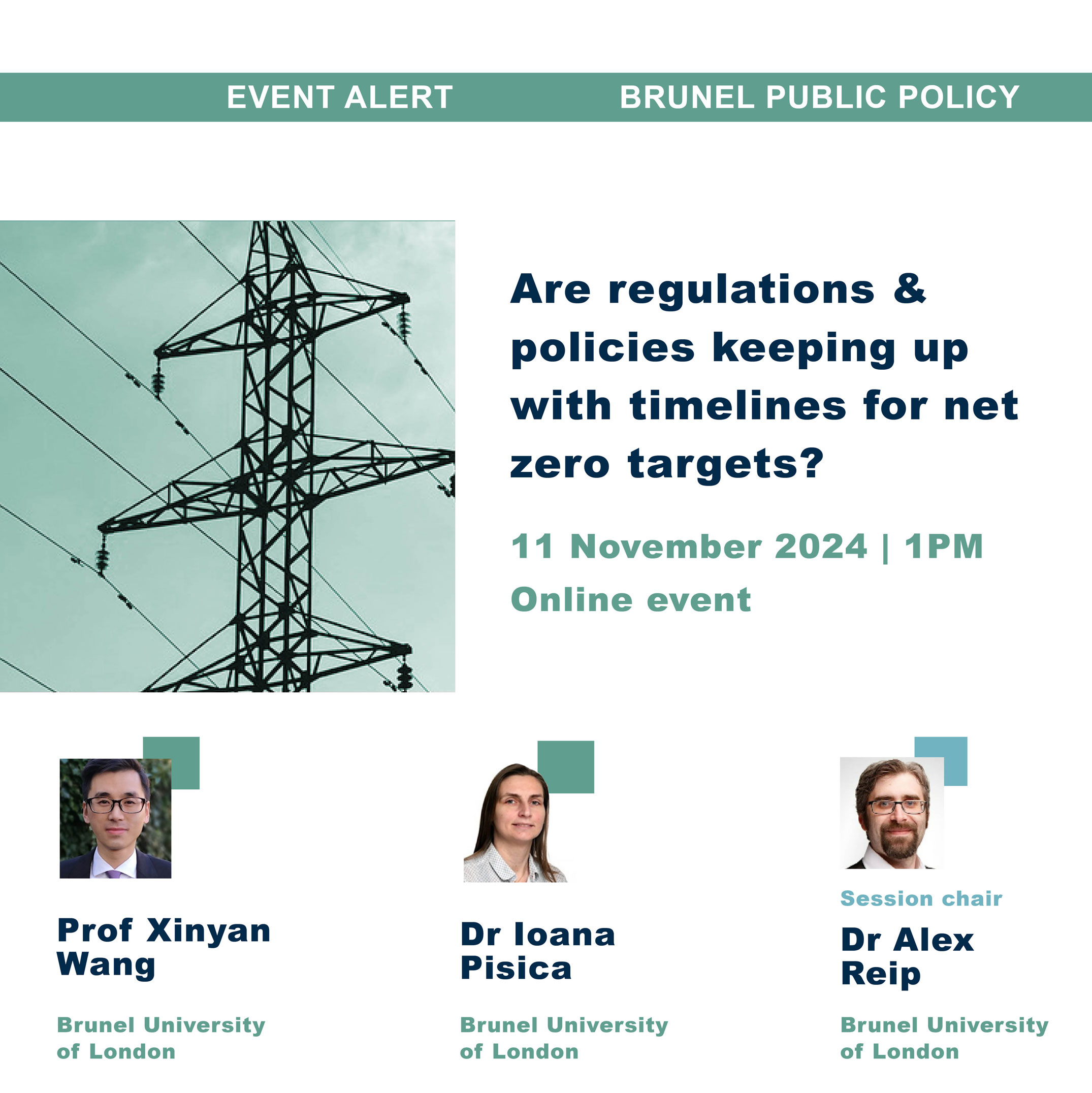This was the first of Brunel Public Policy’s webinar series on “Are Regulators Keeping up with the Science?”
In this webinar, Prof Xinyan Wang presented the role of hydrogen combustion engines in reaching net zero targets. He highlighted excellent research at Brunel to develop these engines and convert older engines for hydrogen use, their suitability to replace fossil fuel engines in a wide range of transport applications, and the challenges that exist in scaling this up at the rates required to meet net zero target timelines.
Dr Ioana Pisica presented an energy and power grid perspective of keeping up with timelines for net zero transition. A key challenge for the power grids in this transition is that there are times when renewable energy sources such as solar and wind produce less energy, but the energy demand still exists, so there is a need for infrastructure for forms of energy production that can continuously supply without carbon emissions and for energy storage.
Within the audience discussion, it became increasingly clear how challenging the 2030 and 2050 net zero targets would be to meet. Both speakers and the chair highlighted the need for further government investment, policy changes, regulatory clarity and acceptance by the broader public if the transition towards net zero is to meet net zero targets
Introduction from Prof Trevor Hoey, Pro Vice Provost International and Sustainability, Brunel University London
Chaired by Dr Alex Reip, Royal Society Entrepreneur in Residence at Brunel University London, who is supporting the development of hydrogen projects through external engagement
Prof Xinyan Wang is a Research Professor at the Centre of Advanced Powertrain and Fuels, Brunel University of London
Dr Ioana Pisica is a Reader in Energy and Power Engineering at Brunel University of London, specializing in smart grid technologies, renewable energy integration, and the digitalization of power systems
Closing remarks from Dr Rosanna Smith, Manager of Brunel Public Policy and webinar series convenor.
